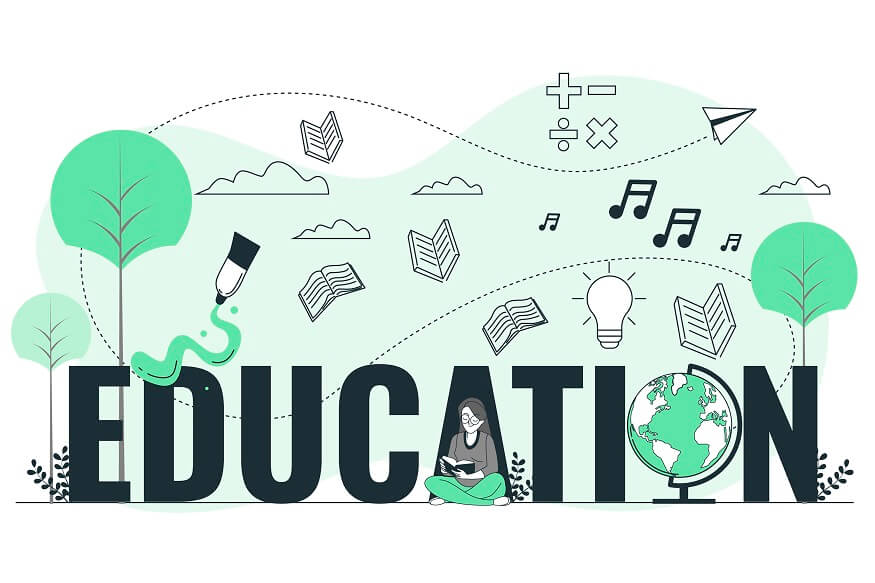Value education leads individuals to a world beyond textbooks. Jack was an ordinary student in his class, with good academics. However, from the day he started receiving value education, he changed into a more humble and responsible person. It taught him empathy, making him more understanding and kinder to those around him. He learnt about responsibility, not just in completing his schoolwork but in being accountable for his actions and their impact on others. Jack also developed critical thinking skills that enabled him to make thoughtful decisions and stand up for what’s right.
Value education is an essential part of modern schooling that aims to instill moral and ethical values in students. It’s not just about academic learning; it’s about shaping individuals to contribute positively to society. So, let’s find out what value education is, why value is required and more.
Types of Value Education: Exploring Various Approaches
Value education is not a one-size-fits-all approach. It encompasses various types, each catering to different aspects of moral and ethical development. Let’s explore them!
Character Education: This focuses on developing virtues such as integrity, kindness, and perseverance. It’s about building a strong moral character and decision-making skills based on ethical principles.
Social and Emotional Learning (SEL): SEL emphasises understanding and managing emotions, setting positive goals, showing empathy for others, maintaining positive relationships, and making responsible decisions.
Moral Education: Here, the emphasis is on understanding right from wrong and practicing ethical behavior. It often involves discussions on moral dilemmas and real-life situations to teach students about ethics and morality.
Civic Education: This type includes understanding civic responsibilities, rights, and the workings of government.
Global and Cultural Education: This type encourages understanding and appreciation of different cultures and global issues in our increasingly interconnected world.
Environmental Education: This teaches students about the importance of sustainability and environmental stewardship. It’s about understanding our impact on the planet and taking action to preserve it.
Health and Wellness Education: This type focuses on physical and mental well-being, promoting healthy living habits, and understanding the importance of mental health.
Characteristics of Value Education: Building Foundations for Ethical Living
Value education is a multi-dimensional and dynamic process with distinctive characteristics. These characteristics shape its effectiveness and relevance in today’s society.
Let’s check out these traits below alongside the purpose of value education.
Holistic Development Focus:
Unlike traditional education, which is predominantly academic, value education focuses on the holistic development of individuals. It nurtures intellectual abilities and emotional, ethical, and social competencies.
Universality with Cultural Sensitivity:
While value education is universal in its core principles like empathy, respect, and integrity, it also respects and incorporates cultural diversities and context-specific nuances.
Practical and Life-Centric Approach:
Value education goes beyond theoretical knowledge, emphasising practical skills and attitudes.
Inclusivity and Equality:
It promotes understanding and tolerance of different perspectives and backgrounds, fostering an environment where diversity is celebrated and respected.
Moral and Ethical Framework:
Value education provides a moral and ethical framework that guides behaviour and decision-making. This framework is crucial in helping individuals distinguish between right and wrong and act with integrity in various situations.
Empathy and Compassion:
Value education at school teaches individuals to understand and share the feelings of others.
Critical Thinking and Reflective Skills:
Value education encourages critical thinking and reflective skills. It challenges students to analyse situations, consider multiple viewpoints, and reflect on their own beliefs and actions.
Lifelong Learning:
Unlike certain academic subjects, value education is a continuous and lifelong process. The values and principles learned are not just for school years but are carried throughout life, influencing personal and professional interactions.
Nurturing Values at Home: The Vital Contribution of Parents
Value education might be a very new concept for some parents. So it’s natural for them to ask what value education is.
Let’s see how parents play a vital role in shaping the moral compass of their kids.
Modeling Behavior: When parents display behaviours rooted in honesty, kindness, and respect, they set a powerful example for their children to emulate.
Open Communication: Engaging in regular, meaningful conversations about ethical dilemmas and moral decisions helps children understand complex issues. This also strengthens the bond between parents and children.
Setting Boundaries: Clearly defined boundaries and expectations teach children about the consequences of their actions.
Encouraging Empathy and Compassion: Parents can nurture empathy by encouraging children to consider the feelings of others, discussing social issues, and involving them in acts of kindness and community service.
Promoting Critical Thinking: Parents can encourage children to think critically about media messages, societal norms, etc. This can help students foster independent thought and ethical decision-making.
Incorporating Value Education in Schools: Strategies and Approaches
Schools can adopt various innovative strategies to integrate value education into their curriculum effectively. This could include interactive sessions where students engage in discussions about moral dilemmas, community service projects etc. Value education at school can teach students the importance of giving back, and environmental initiatives that highlight the need for sustainability.
Teachers can enhance the main benefits of value education
. They can use real-life scenarios and role-playing exercises to make lessons more relatable and impactful. Schools should also consider partnerships with parents and community organizations to provide a more comprehensive value education experience.
Value education is a crucial element in shaping well-rounded, responsible citizens. It equips young minds with the tools they need to navigate life’s challenges with compassion, integrity, and a sense of social responsibility. It’s about preparing them not just for tests and grades, but for life itself.
At
Billabong International High School, we understand the immense power and necessity of value education. We are dedicated to nurturing this essential aspect of learning, helping to mold our students into thoughtful, empathetic, and responsible individuals. To learn more about our curriculum, contact us today.

